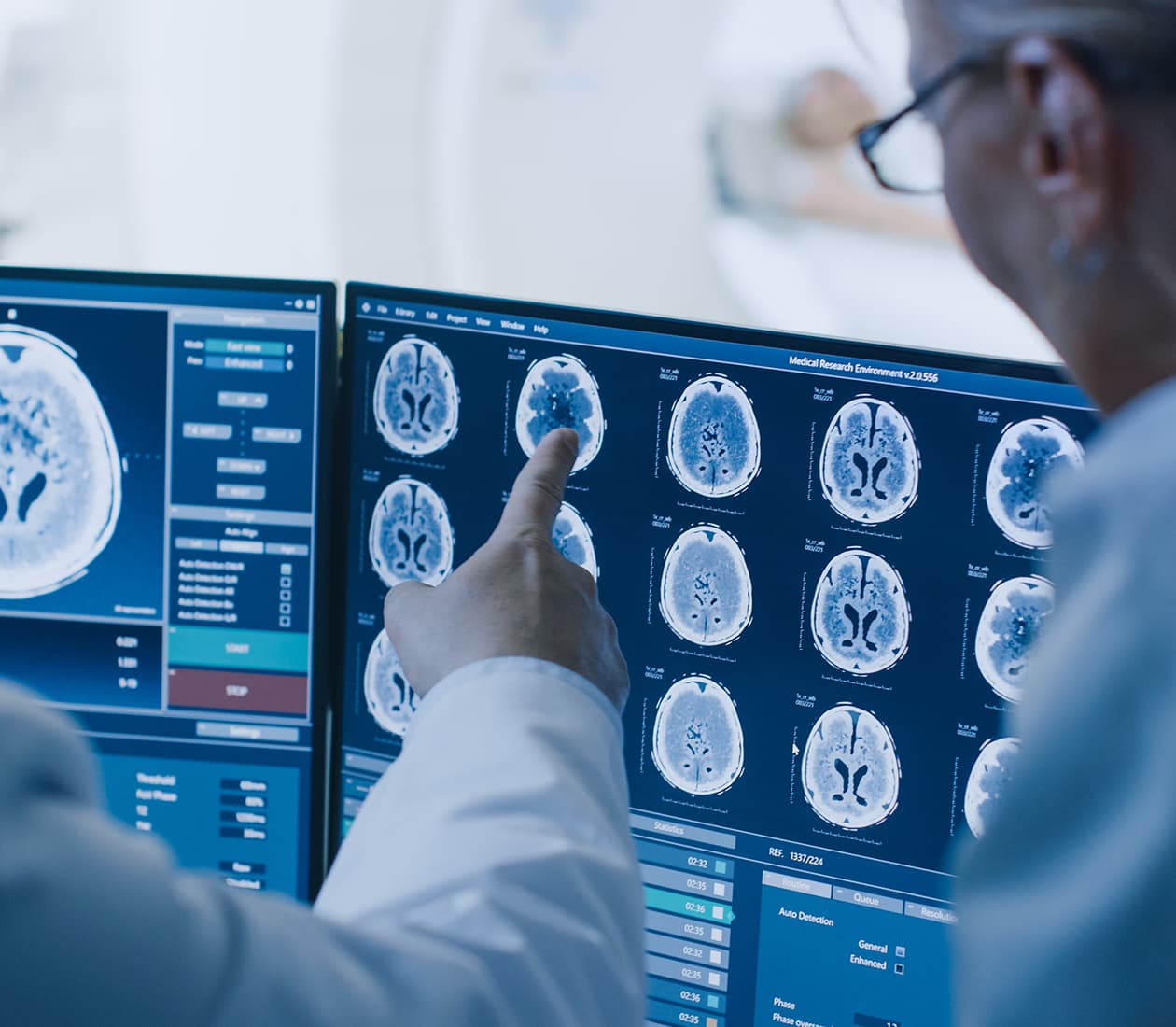
The Neurological Oncology Program at Cleveland Clinic Abu Dhabi’s Neurological Institute serves patients from across the country and around the world, providing state-of-the-art care to individuals who suffer from neurological cancers.
The team of skilled specialists at the Neurological Oncology Program take a comprehensive team approach, with experts from the Neurological Institute and Cancer Institute, working in close collaboration, to offer a full range of advanced treatment options for adults with brain tumors, pituitary tumors, skull base tumors, and spinal cord tumors. The integrated approach also includes a team of expert physicians, researchers, clinical care coordinators and nurses, working together to offer the best personalized science and technology, one patient at a time.

Led by experts in the field of neuro-oncology, our interdisciplinary program provides an optimized and individualized approach to each patient’s condition. Neurosurgeons, radiation oncologists, medical oncologists, neuropathologists, neuro-radiologists, endocrinologists, interventional neuro-radiologists, ENTs (ear, nose, and throat) specialists, ophthalmologists, pain management and neuro-rehabilitation specialists work hand-in-hand to establish a treatment plan for the best possible outcome of every patient.
Every patient who comes to the program receives Patients First care throughout diagnosis and treatment. We offer the latest technological advancements in neurological tumor diagnosis, including advanced MRI techniques (MRS, fMRI, DTI), CT, and FET-PET. Similarly, we provide the most advanced treatment options available including innovative minimally invasive endoscopic and microscopic neurosurgery procedures, awake craniotomy, fluorescence-guided surgery (FGS), intraoperative monitoring, neuro-navigation, chemotherapy, targeted therapy, immunotherapy, high-precision radiation therapies, stereotactic radiosurgery, intraoperative neuromonitoring, and other advanced approaches.
Speak with our Contact Center for assistance
Request an Appointment 800 8 2223 International Patients